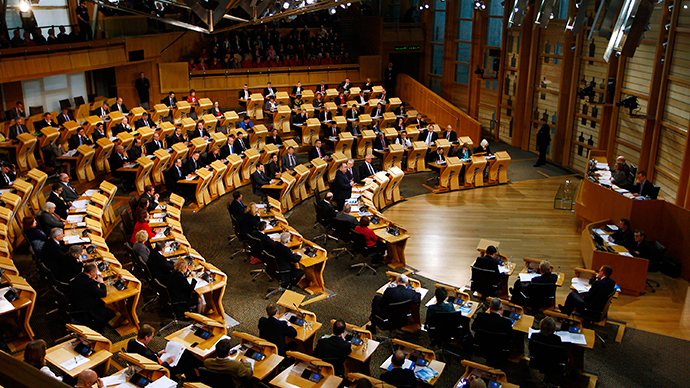Putting human rights at heart of Scottish foreign policy

One of the most positive contributions to the ongoing Scottish independence debate has been the Scottish Government’s recent commitment to a ‘do no harm’ arms exports policy in the event of a Yes vote.
This would be a policy of engaging positively with the outside world and not selling weapons to tyrants and dictatorships.
Last month the Scottish government’s Minister for External Affairs and International Development Humza Yousaf wrote a well-received blog for the Herald in which he presented his vision in contrast with the current UK one, saying “our good work globally will not be undermined by the selling of arms to some of the world’s most brutal dictators, as has been done by previous UK governments.”
I was very impressed. Yousaf is one of the most prominent up and coming SNP ministers and widely tipped as a future first minister, so what he says matters. However, I wanted to know more about which governments he and his colleagues see as ‘brutal dictators’ and which they see as potential partners.
The UK’s links with regimes that abuse human rights are well known, so I contacted Yousaf on Twitter to ask him to clarify what criteria the Scottish government would hope to apply in an independent Scotland.
He responded very quickly, telling me “We look towards the Swedish model of Policy Coherence where civil society provides the barometer in conjunction with government.”
The problem with citing the Swedish policy is that it has almost as many inconsistencies and contradictions as the UK one. Swedish exports from 2012 included 57 million euro (US$78.4 million) worth of military exports to Algeria and 6.5 million euro to Bahrain. If we look to 2011, Sweden’s largest customers included Saudi Arabia, to whom they sold almost 500,000,000 euro of military equipment, and UAE, who bought over 70 million euro. While it could be argued that the Swedish policy is an improvement on the UK’s one, it’s also clear that it’s a policy to be challenged rather than replicated.
A disappointing aspect of the recent debates about the impact of Scottish independence on jobs in the Govan shipyard and Rosyth naval base is that they have focused almost entirely on how the status quo can be maintained. Very few voices have focused on the ways in which the Scottish government can encourage a more positive and constructive manufacturing sector, with less focus on military industry and the arms trade.
Yousaf’s goal is admirable, but it needs to be underpinned by a greater clarity. According to the Scottish Council for Development & Industry, there are 185 arms companies with offices in Scotland, which employ 12,600 skilled workers and account for annual sales of 1.8 billion pounds (US$3 billion), so what happens to them is obviously a matter of concern.
One of the most thoughtful responses to the launch of the White Paper came from the Unite union’s Scottish Secretary, Pat Rafferty, who said “We also believe there is a case for the creation of a Scottish defense diversification agency to help offset the employment impact on the proposed removal of Trident.” With a wider brief, such an agency could also examine alternative work for the other people currently employed in the military industry in Scotland.
For example, if the government, whether in Scotland or the UK, transferred the resources it provides to the arms industry into promoting renewables, it could produce more and better jobs.
Not only would a ‘do no harm’ foreign policy present fresh and ambitious new thinking on an area that is traditionally done in the dark, but in the short term it would set a challenge to pro-union campaigners to look at the impact UK arms exports have on global peace, security and human rights and reflect on how this can be improved.
This isn’t the first time that a high ranking politician has spoken about the need to make human rights central to foreign policy. In 1997, the late UK Foreign Secretary Robin Cook spoke about the need for a foreign policy with human rights at its heart. He also argued for the conversion of military industry to socially useful production. Unfortunately neither of these goals were realized, but Scottish people should remember his arguments and take warning from his failures, whether in an independent Scotland or as part of the UK.
Andrew Smith for RT
Andrew Smith is a spokesperson for Campaign Against Arms Trade (CAAT). Follow CAAT on Twitter.
The statements, views and opinions expressed in this column are solely those of the author and do not necessarily represent those of RT.
The statements, views and opinions expressed in this column are solely those of the author and do not necessarily represent those of RT.












